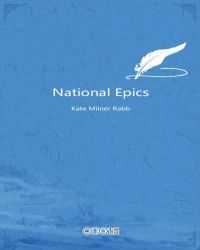PARADISE LOST.
您可以在百度里搜索“National Epics 艾草文学(www.321553.xyz)”查找最新章节!
PARADISE LOST.
Paradise Lost was written by John Milton, who was born in London, Dec. 9, 1608, and died Nov. 8, 1674. After leaving college, he spent five years in study at home, during which time he wrote L'Allegro, Il Penseroso, Arcades, Comus, and Lycidas. In 1638 he travelled on the continent and in Italy, where he met Galileo. He hastened home in 1639 on account of the political disturbances in England, and espousing the Puritan cause, devoted the next twenty years of his life to the writing of pamphlets in its defence. In 1649 he was appointed Latin Secretary under Cromwell. In 1652 he lost his sight in consequence of overwork. At the age of twenty-nine, Milton had decided to make an epic poem his life work, and had noted many historical subjects. By 1641 he had decided on a Biblical subject. He had probably conceived Paradise Lost at the age of thirty-two, although the poem was not composed until he was over fifty. It was written after his blindness and dictated in small portions to various persons, the work being collected and revised by Milton and Aubrey Phillips. It was completed, according to the authority of Phillips, in 1663, but on account of the Plague and the Great Fire, it was not published until 1667.
Paradise Lost is divided into twelve books and is written, to use Milton's own words, "In English heroic verse without rhyme, as that of Homer in Greek and of Virgil in Latin, rhyme being no necessary adjunct or true ornament of poem or good verse."
Paradise Lost was neglected until the time of the Whig supremacy in England. In 1688 Lord Somers, the Whig leader, published an édition de luxe of the poem; Addison's papers on it, in 1712, increased its popularity, and through the influence of the Whigs a bust of the poet was placed in Westminster Abbey in 1737.
There is no better proof of the greatness of Paradise Lost than the way in which it has survived hostile criticism. It has been criticised for the lengthy conversations and "arguments" of its characters; for its materialization of the Divine Being; because of its subject; because of Milton's vagueness of description of things awesome and terrible, in comparison with Dante's minute descriptions. But the earnest spirit in which it was conceived and written; the subject, giving it a "higher argument" than any merely national epic, even though many of Milton's, and his age's, special beliefs are things of the past, and its lofty and poetical style, have rendered unassailable its rank among the noblest of the epics. National Epics




